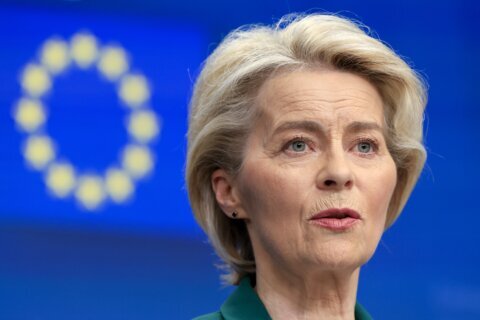GENEVA (AP) — A top U.N. official said Friday that West Africa is next in line to receive crucial Russian fertilizer that has been prevented from being exported from European ports to needy countries, largely over private-sector concerns about financing and insurance for such deliveries.
Rebeca Grynspan, the head of the U.N. trade office, hailed “very good news for the world” that Russia, Turkey, Ukraine and the world body had a day earlier extended a four-month deal to ease the export of Ukrainian grain and foodstuffs through the Black Sea. The war in Ukraine has helped drive up prices for food and fertilizer around the world.
The extension had a quick impact on market prices and earned the U.N. some breathing space as talks continue.
“But we have said very clearly that we are still not where we want to be,” Grynspan told a U.N. briefing in Geneva. “There is still work to be done and especially in the fertilizer area because there, still, we are seeing a fertilizer crunch.”
“We see a very steep decline in the demand for fertilizers because of the affordability crisis, and that is what is keeping us awake right now,” she added.
The agreement struck on July 22 which had been set to expire on Saturday, unblocked shipments of 11 million tons of grain and foodstuffs from Ukraine and helped ease rising global food prices.
The deal will be extended by another four months. The initiative set up a safe shipping corridor in the Black Sea and inspection procedures to address concerns that cargo vessels might carry weapons or launch attacks.
Obstacles still remain for a second, parallel deal on the export of Russian food and fertilizers. Moscow has expressed displeasure that progress hasn’t been made — and it expects some.
Before the war, Russia was the world’s top exporter of fertilizer and a lack of it could precipitate a future food crisis.
Although Western sanctions against Russia for its invasion of Ukraine did not target food exports, many shipping and insurance companies were reluctant to deal with Moscow, either refusing to do so or greatly increasing the price.
Russia has offered to donate 260,000 metric tons of fertilizer stored in European ports to farmers in the developing world who have been priced out of the fertilizer market because of shortages. The U.N. official said the first ship is slated to leave the Netherlands on Monday for Mozambique, where the fertilizer will go by land to Malawi.
“We hope that the next destination of the fertilizers will be West Africa, that has been a very affected by the affordability crisis of fertilizers,” said Grynspan. “Next destinations: West Africa.”
Copyright © 2024 The Associated Press. All rights reserved. This material may not be published, broadcast, written or redistributed.







